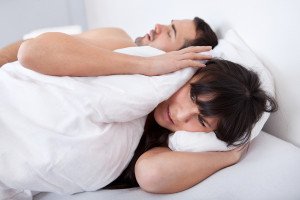Treating Sleep Apnea With Dental And Oral Anti-Snoring Devices
 Getting a decent night’s sleep is vital for your ability to concentrate and be alert during the day. Plus it enables you to physically rejuvenate and restore while you are sleeping. A good night’s sleep can also save the lives of the millions of Americans who suffer with sleep apnea, especially if it is obstructive sleep apnea (OSA) that we are talking about. This is a chronic sleep disorder that can be life-threatening in some cases as the afflicted person will stop breathing for 10 seconds or longer on a frequent basis.
Getting a decent night’s sleep is vital for your ability to concentrate and be alert during the day. Plus it enables you to physically rejuvenate and restore while you are sleeping. A good night’s sleep can also save the lives of the millions of Americans who suffer with sleep apnea, especially if it is obstructive sleep apnea (OSA) that we are talking about. This is a chronic sleep disorder that can be life-threatening in some cases as the afflicted person will stop breathing for 10 seconds or longer on a frequent basis.
How Do You Know If You Have Sleep Apnea?
The primary indicator is chronic, loud snoring. However, some symptoms are not that audible nor are they that obvious. A simple yet candid conversation in conjunction with an examination performed by one of our dentists here at Community Dental Group can detect some of those less evident signs or symptoms. When patients complain about dry mouth, lethargy, or morning headaches, this is a pretty good indicator that they are suffering with sleep apnea.
In some instances, we may refer you to a sleep medicine specialist to further study your case and assess your specific condition. If you are diagnosed with sleep apnea, then you will likely return here for treatment. Ironically, your dentist may be the first medical professional that diagnoses you with this sleep disorder since you typically see them more often than your family physician throughout the year.
Treatment Options
Depending on the severity of the sleep disorder that you are suffering with, there are certain dental or oral devices that can be effective for treating your condition. Furthermore, there are a number of these devices that are effective at treating mild to moderate cases of OSA. Since there are a number of different options where these devices are concerned, you will need to consult with a dentist or orthodontist in order to determine which one will effectively address your specific needs.
The mandibular advancement device is one of the more commonly recommended devices used in the treatment of sleep apnea. It is similar in appearance to an athlete’s mouth guard and functions by repositioning the lower jaw slightly forward and downward. In so doing, it forces your airway open so that you don’t encounter any difficulties while you are sleeping. Additionally, there are tongue-retaining devices that are oftentimes recommended for patients suffering with sleep.